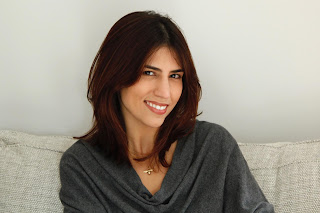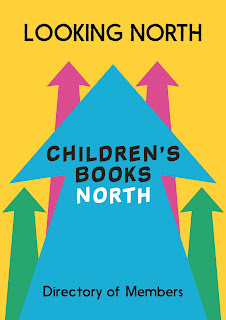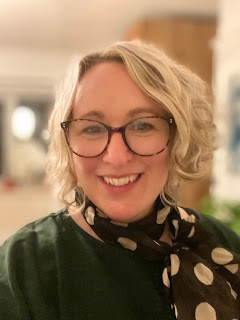Special Guest Northern Highlight - Glasgow Children's Writers Group
SPECIAL GUEST NORTHERN HIGHLIGHT
Can
you tell us about the Glasgow Children’s Writer’s Group?
In
reality, it is a branch of the Society of Children’s Books Writers and
Illustrators (SCBWI), which I run — we are the Glasgow hub. But a long time ago,
when it was still run by Maisie Chan, our group became non-SCBWI-member friendly and
we have kept it this way. It is actually a win-win situation because most of
the children’s writers who want to invest in their careers end up joining SCBWI
anyway. But keeping it open to non-members allows us to support the writers who
cannot afford a membership and yet are just as focused in their careers.
We
used to meet once a month at Gallery of Modern Art. It was the perfect spot
because it is right beside a library and in the heart of Glasgow. As a result
of the pandemic, we have moved to online meetings, and I must say, whilst
being a bit less social we have found it more productive. I am a big fan of
writing anywhere, but there is something about people’s own corner that can be
quite motivating, especially when you feel that you have made progress during a
session. People can jump into their own personal projects straight after a
meeting, instead of having to interrupt their writing to take a train back home.
Right
now our group has over 30 members and it is composed of beginners, established,
published and non-published children’s writers who live in Glasgow and
surroundings. We communicate through a page on Facebook, but some people also ask me to send
news by email. You have to ask to be
invited to join, but the only requirements are to be living in Glasgow and
to be passionate about children’s books. The latter is more important.
Glasgow Children's Writers Group:
https://www.facebook.com/groups/1299580756841749/about
What goes on during a meeting?
We
usually start with a little light chat - what has been going on in children’s
writing, and what has been happening in our lives lately. Then we move on to
talking about ongoing writing projects, struggles and accomplishments. There is
always a rhythm, as if we were at the gym warming up for a workout. When
everyone has had a chance to speak we move on to writing exercises. These vary
from brainstorming techniques to problem-solving and narrative structure.
Since
ideas are most likely to show up when we are not trying so hard to find them,
it is quite common to have them when we are focusing on something else. This
is actually a good psychological trick for creative writing. So my only
disclaimer is: if an idea sparks during an exercise, abandon the workout and go
get it!
Writing
for children is very different than writing for adults. There are many written
and unwritten rules to follow when you write children's books, such as
audience's age, reading ability, subject, format, length, pace, and so on. All those specific rules change according to genre and audience. This is why we
constantly return to these topics as a group and often on a one-to-one basis.
Sometimes
we do critiques but it is something that has to be requested by the writer, and
usually I mentor individually. Sharing work can be intimidating and people can
find it offputting to be in the spotlight, so I usually avoid that in the group.
However, we do share the results of our exercises because the writers are more
comfortable when they are all doing the same task. Any comparisons made between
texts are done in a rewarding way with suggestions that show off their skills,
which brings motivation. The group are most likely to write their own projects in
their free time, so when we are together I want to see them exploring what they
are not used to doing on their own. Discovering what makes you comfortable in
your own writing zone is key.
How do you support and encourage children’s writers?
It
really depends on the writer’s needs. Sometimes a writer can be a great
storyteller but lacks understanding of the writing format needed for a
particular audience. Other times the writer might know every technical rule by
heart but lacks a sense of intuitive narrative.
This
is why I like to join self-knowledge with adaptation. In this scenario,
self-knowledge is exploring your skills, likes, and desires, whilst adaptation
is understanding what needs to be changed, rethought or improved according to
the rules of the industry. I believe these to be the main keys for finding out
where you fit in the market. Once writers understand these, they should know
how to progress on their own.
Every writer I know seeks independence. This means having the tools to be resilient and resourceful within their own writing abilities and goals. What I aim for is to make them confident that this is something within their reach. However, encouragement is not enough in itself if we do not talk about discouragement. Demystifying industry fallacies is also critical. For example, when writers learn about a successful author who found a formula that worked, they are most likely to be discouraged if it does not work for them.
People
are unique and have different habits and intuition when it comes to writing. Understanding
how they work as individuals is more important than trying to follow someone
else's approach. This is why I frequently remind our group that writing techniques can
and should always be personalised.
Curiously,
working with children’s illustrations gives me an advantage when helping writers
to understand their struggles. Since I am frequently having to translate
abstract concepts like ‘voice’, ‘pace’, and ‘rhythm’, I use a lot of metaphors
and analogies to try to turn those into a more visual concept. It is not far
from what I do when I draw, it keeps me reflective and I really enjoy it.
 |
| Illustration by Tita Berredo |
What opportunities/events have you got coming up for children’s writers?
In
our group, we keep an eye out for upcoming events such as festivals, talks,
competitions, workshops and other opportunities — it is a communal exercise
and we share it on our page. We meet on the last Sunday of every month, our
next meeting is on the 27th June. More and more I try to do something extra
for the group, now and then I host a workshop or participate in a talk.
One
thing that I really enjoy doing is taking a group around a museum or gallery,
using the artwork as inspiration for short stories. The last one was for the
SCBWI Scrawl Crawl at the Kelvingrove museum. It was quite special to me
because there is a small area dedicated to Brazil’s rainforests, so I was able
to talk about Brazilian folktales and watch how the writers created their own
versions merged with their Scottish background.
The
virtual solutions as a consequence of the pandemic demonstrate that is not impossible
to recreate the same kind of events that used to challenge writers before. So I
am planning a virtual visit to a museum open to all children's writers and
illustrators in Scotland for the end of June.
Before
that, on the 10th of June, I will be hosting Maisie Chan’s book launch of Danny
Chung Does Not Do Maths.
Once
we get some sunshine and ease down COVID rules, I hope to get all my fellow writers
together for an outdoor writing day. Anyone who wants to know more about the events
to come is welcome to contact me for the details (email included at the bottom of this post).
How
important are networks to writers?
Writers might think that having an agent or getting published ASAP is more important, but networks are equally so. Oftentimes more.
We
all know writers who are complete loners and they can do just fine, but
visibility and networks are tied. If you want to really understand how the
writing industry works the obvious way is to become part of its community. To
say ‘I want to be published’ is too narrow a matter and a rather vague goal,
when in truth the more specific you are about what you want to write, the faster
you can find your niche. Connecting with likeminded writers is a fantastic way
to refine your work and being part of the writing community can enormously help
writers progress in their careers. It is also quite easy to build a network nowadays,
it can be as simple as being interactive on social media. I am a big fan of Instagram,
everyday I post a new illustration or sketch of projects that I am working on and
I get to share techniques with my fellow artists. For writers I suggest
following authors and publishers on Twitter.
Networks
are important at any stage of a writer’s career. I only have an agent to begin with
if because I put myself out there, and having one does not mean there is no need
for me to continue to grow my network. Whilst my agent plans my debut I am
constantly working on other projects, freelancing,
making connections, attending talks, hosting events, doing interviews and
whatever I can to make myself present and active in the writing community. Nine
out of ten jobs that I get come through someone in my network, and it is amazing
how quickly it becomes cyclical. All the visibility that I get generates more contacts
and projects that will once again increase my network. In addition, knowing how
to self promote and to make connections in the industry is something that any
publisher can appreciate in a writer.
The
children’s writers’ community is an extremely friendly and reliable one.
Working closely with other writers has been one of the best experiences for my
career’s growth and one of the most rewarding on a personal level.
 |
| Glasgow Children's Writers' Group meeting online |
What
for you is the 'spirit of Scotland’?
I
was born and raised in Brazil, moved to Singapore in my twenties and only to
the UK in the past four years. Whilst I travelled to many places, I can only
speak of what I know.
Coming
from a very different country I would say that Scotland’s spirit, especially
the Glaswegian one, is very close to the people in my home city of Rio. Kind
and emotionally brave people who are good listeners and yet lighthearted,
kindred spirits. These are comforting aspects for any newcomer, and from all
of the places outside my own country, this one is the one where I feel most
welcome.
Now if I were to speak about the spirit of the Scottish people who I know, I would
have to include our writing group. It is an inspiring, fiery, and extremely
humble one with laughter to give and talent to share.
Who
for you are the great Scottish children’s writers?
Scotland
has a big history of great children’s writers. Authors such as Robert Louis Stevenson,
J.M. Barrie, and Arthur Conan Doyle will always be classics and special for most
people around the world as they were for me growing up in Brazil.
In
a more modern view, I think the great Scottish writers are amongst the people I
know and that is why I started reading their books. I really enjoy reading the
books by Justin Davies, Sarah Broadley, Barbara Henderson and Morag Hood.
Now,
it might be a bit biased, but I think it would be unfair not to mention some
authors who are part of the Glasgow Children’s Writers' group, whose stories I
genuinely enjoy reading. Lindsay Littleson is a master in combining mystery
and adventure with the mythical Scottish landscape; Emily Ilett has a beautiful
way of bringing sensorial detail and sense of place; and how not to mention
Maisie Chan and Dean Atta? Both write deeply relatable characters and have
great voices when it comes to minority representation and social responsibility.
Maisie was the first writer I met here in Glasgow and I adore her work. Some of
them might not have been born in Scotland but they most certainly represent
great modern children’s writers who live here. Those are dear friends of mine who
opened my eyes to the world of modern children’s writing in Scotland. All of
them are great storytellers for different ages and tastes.
How
can the publishing market better support and encourage Scottish children’s writers?
The
first thing that comes to my mind is that small and indie publishers are not
promoted enough and need a wider spotlight. Many writers come to me with a
single publisher in mind, and the vast majority pick a giant in the market. We
must spread the word about small presses and what they can do for authors in
the longer term, just as we need to talk more about self-publishing. Once
writers realise that rejections are the norm; big traditional publishing is
mostly about a commercial product; and that in this reality there is a limit to
authorial freedom, things feel less personal and it gets easier for writers to
look for other solutions. It sounds harsh, but it does not have to be. Most
people in the UK do not see the children’s market beyond big British
publishers. But there is a world out there looking for all kinds of stories, and many people are fascinated by Scotland’s mythical landscapes and folktales.
I don’t think that most Scottish writers realise how much the world outside the
UK and Europe is interested in them. It would be exciting to see Scottish
writers taking on the world out there.
It has been a hard year for writers and I think organisations such as the Society of Authors (“SoA”), Creative Scotland and The Scottish Book Trust have been especially important. For example, the SoA has administered a number of grants that have helped fund authors in financial difficulty. I recently became a committee member of the SoAiS (in Scotland) and am now learning new means to help Scottish authors. Whilst working as an advocate to writers in general, my personal aim is to focus on children’s writers.
We are slowly realising that the pandemic will change many things about how the publishing industry used to work. One way to deal with it is to think of different ways of getting work out there other than traditionally. Libraries and independent bookshops, for example, are great supporters of writers, and especially now they need assistance too. We should be exploring ways to pair up and adapt to the post-pandemic world.
Not
to flatter, but I think that organisations like Children’s Books North are
much needed when it comes to promoting Scottish writers. Sometimes it feels
like we get drawn to the larger English market, having to compete and adapt to
a different commerce. We should challenge people inside the industry to
encourage and promote writers with regional diversity in the children’s books
market. Scotland has such a strong identity, it should take over the stage and
shine bright.
Instagram and Twitter: @titaberredo
Tita Berredo is a children's writer and illustrator born in Rio de Janeiro, Brazil. She has a Master's degree in Children's Literature and Illustration from Goldsmiths University of London, and is represented by Fairbank Literary Representation. Tita lives in Scotland, where she supports writers by coordinating the Glasgow SCBWI hub and as a member of the SOAiS committee. Tita leads all kinds of illustration workshops and is a picture book reviewer for My Book Corner.


.png)


Comments
Post a Comment